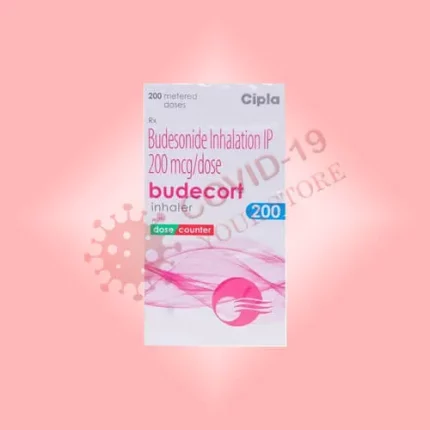What Is Triclabendazole?
Triclabendazole is a broad-spectrum anthelmintic medication used to treat infections caused by flukes, which are parasitic worms that affect various organs in the human body. The drug is particularly effective against Fasciola hepatica (the liver fluke) and Fasciola gigantica, which can cause fascioliasis, a liver disease in humans and animals.
Triclabendazole is typically sold under the brand name Triclabend and is available in tablet form. It is one of the most effective treatments for fluke infections, particularly in areas where fascioliasis is prevalent. The drug works by targeting the metabolism of the parasite, effectively killing it and preventing its ability to reproduce.
How Does Triclabendazole Work?
Triclabendazole works by inhibiting the energy production of parasitic worms, especially the liver fluke. It specifically targets the microtubule structure of the parasite’s cells, disrupting the normal functioning of its metabolism. This leads to the death of the parasite and the elimination of the infection from the body.
The drug is highly effective in targeting the adult and larval stages of the Fasciola hepatica and Fasciola gigantica, making it the drug of choice for treating fascioliasis. It is absorbed into the bloodstream and quickly reaches the site of infection, exerting its effects.
Benefits of Triclabendazole
- Effective Against Liver Flukes:
Triclabendazole is known for its high efficacy against liver flukes, especially Fasciola hepatica, which is the most common cause of fascioliasis in humans. It can be used for both acute and chronic fascioliasis, offering rapid relief from symptoms. - Rapid Action:
Triclabendazole acts quickly to kill the liver fluke, reducing the severity of infection and preventing complications such as liver damage, jaundice, and abdominal pain. - Prevents Complications:
Fascioliasis can lead to severe liver damage, including cirrhosis, and even gallbladder disease. Triclabendazole helps prevent such complications by effectively clearing the infection from the liver and other affected organs. - Proven Effectiveness:
Clinical studies have shown that Triclabendazole has a high cure rate, with most patients experiencing significant improvement after a short course of treatment. It has been recommended by the World Health Organization (WHO) for the treatment of fascioliasis. - Minimal Resistance:
Resistance to Triclabendazole has been reported to be rare, making it a reliable treatment option even in regions with high parasite prevalence.
How to Take Triclabendazole
The correct dosage and administration of Triclabendazole are essential for achieving the desired therapeutic effect. Here’s a general guide on how to take it:
- Dosage:
- The typical dosage for adults and children over 6 years is 10 mg per kg of body weight, usually taken in a single dose.
- For children under 6 years or those with specific health conditions, a doctor should determine the appropriate dosage based on age and weight.
- Administration:
- Triclabendazole is taken orally, and it is typically provided in tablet form. The tablets should be swallowed whole with a glass of water, either with or without food. However, taking it with food may reduce the likelihood of stomach upset.
- Timing:
- It’s important to take the medication as prescribed and complete the full course to ensure that the infection is entirely eradicated. Missing doses may lead to treatment failure or reinfection.
- Missed Dose:
- If you miss a dose, take it as soon as you remember, but skip it if it’s almost time for the next dose. Never double the dose to make up for a missed one.
Who Makes Triclabendazole?
Triclabendazole is manufactured by various pharmaceutical companies under different brand names. One common brand name is Triclabend, produced by Cadila Pharmaceuticals. Cadila is a reputable pharmaceutical company known for manufacturing anthelmintic drugs, including those used for parasite infections like malaria and fascioliasis.
The availability of Triclabendazole may vary by country, and it is often available as a generic drug, which makes it more affordable and accessible for people in areas where fascioliasis is common.
Is Triclabendazole Safe for Humans?
Yes, Triclabendazole is generally safe for humans when used according to medical advice. It is widely used for treating fascioliasis and has been recommended by health authorities like the World Health Organization (WHO). However, as with any medication, it is important to use it under the guidance of a healthcare provider, especially in specific conditions:
- Pregnancy and Breastfeeding:
Triclabendazole is generally not recommended during pregnancy, particularly in the first trimester. If you are pregnant or breastfeeding, consult your healthcare provider before taking this medication. - Liver and Kidney Function:
As Triclabendazole targets the liver, it is essential to use caution in individuals with liver disease or impaired liver function. Similarly, people with kidney issues should inform their healthcare provider before starting treatment. - Allergic Reactions:
Although rare, some individuals may experience allergic reactions to Triclabendazole, including rashes, swelling, or difficulty breathing. If you experience any signs of an allergic reaction, seek medical help immediately. - Drug Interactions:
Triclabendazole may interact with other medications. Be sure to inform your healthcare provider about any current medications you are taking, especially those for liver disease or parasite infections.
Side Effects of Triclabendazole
Triclabendazole is generally well-tolerated, but like any medication, it can cause side effects in some individuals. Some of the common side effects include:
- Headache
- Nausea
- Stomach pain or discomfort
- Dizziness
- Fatigue
Rare side effects may include:
- Skin rash
- Allergic reactions, including swelling or difficulty breathing
- Liver toxicity (in individuals with pre-existing liver conditions)
If you experience any of the rare or severe side effects, contact your healthcare provider immediately.
Disclaimer
The information provided in this article is for informational purposes only and should not be used as a substitute for professional medical advice. Always consult with a healthcare provider before starting any medication, including Triclabendazole. Your healthcare provider will assess your health condition and recommend the most appropriate treatment.













